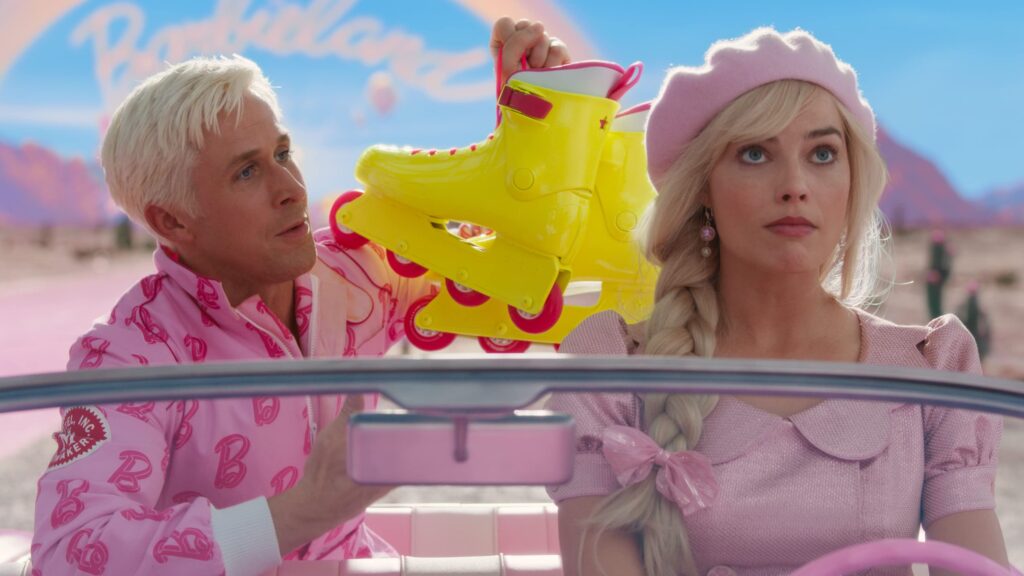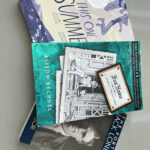Since its release, Barbie has been hailed as a feminist film which empowers women while simultaneously criticizing our patriarchal society. Students at NWA, however, have mixed views regarding the effectiveness of Barbie’s feminist message.
“I feel like while Mattel was very self-aware, the movie was kind of just repeating stuff we already know,” said Nini Annuse, an NWA sophomore.
While Annuse condemns parts of the movie for being too cliche, she said she still appreciated the movie for what it was as a feminist film, citing performances from actresses such as Margot Robbie and trans model and writer Hari Nef.
“I really liked some of the casting choices and how inclusive they were,” said Annuse. “It made it seem like Mattel actually cared about the movie and representation.”
In contrast to Annuse’s takeaways from the movie, students like Mayumi Schreiber, a senior who’s an active feminist, had issues with Mattel’s “self-aware” criticism. Schreiber spends much of her time consuming feminist media and aligns with ideals of intersectional feminists. She tries to understand the different ways in which women experience discrimination, with a focus on BIPOC members of the community.
“The only thing that peeved me a little bit was how on the nose the commentary of Mattel as a company itself was,” said Schreiber. “It openly acknowledges that they’ve been awful and profiteered off of teen insecurity and a false girl power. To be honest I think releasing a $145 million movie meant to make money off of their newer girl power apology feels pretty scummy and disingenuous.”
Members of the student body tended to call out the movie on its “overtly capitalist themes,” saying that due to the corporate nature of many films, they tend to lack nuance.
“I think big budget movies are inherently very capitalist, so there was a lot of satire about capitalism,” said Coco Brandabur, NWA junior. “[It] was cool, but I don’t know if it addressed [capitalism] as much as I wished it had. It’s just kind of hard to take it seriously. It’s a billion dollar company.”
Valerie Lawrence, a freshman, is an avid feminist advocate who took great pleasure in analyzing Barbie. She believes that while the movie faltered in its attempts to inform people, specifically men, about feminism and the patriarchy, it was a step in the right direction.
“It’s a starting point for some people to feel more comfortable, and to direct towards something that’s a little more overtly feminist, which is great,” said Lawrence. “We need to draw attention towards these issues.”
Lawrence calls for a more subtle and meaningful way of directing the message, due to how it may be received. Since its release, there has been international criticism of Barbie for its blatant pro-women stance, and Lawrence believes toning down the way the movie portrays men may help.
“People might think that it means this is the solution — [to] make men all inferior — but it’s called gender equality for a reason,” she said. “We need to be equal and not one above the other.”
Some refer to the vibrant set design and colorful costumes that are center stage in the film, saying that the flagrantly bright pink movie drives the message home with the nature of the outfits and scenery.
“I liked the aesthetic of it and the color schemes,” said Addy Paternoster, NWA sophomore. “The costumes especially — I loved the costumes. It makes the movie really stand out and helps lessen the heaviness of the subject matter.”
Some students think the fun color palette and lighter tone makes for better accessibility and comprehension. One of the main features of Barbie has been the developing culture surrounding it. Dressing up in all pink and going to the theater with friends is regarded as part of the experience.
Despite students’ annoyances, however, many — including those with concerns — still appreciated the movie for what it was. Even though it had its drawbacks, they thought the movie did more good than harm, and view it as an important piece of media, especially for kids.
“I think overall what mattered is that it moved its audience,” said Schreiber. “Barbie is the only film I’ve ever seen where when the film was over, audience members lingered in the lobby, hugging and talking to one another. I had never seen and heard so many girls of various ages telling each other that their outfits were amazing. It really was sweet.”
A popular belief circulating the internet is that Barbie is a movie made by women and for women. Some believe it isn’t necessarily meant for men to understand, and that that is okay, stating how encouraging it was to see as a woman in today’s society.
“It was a very validating movie,” said Fiona Strom Sedita, NWA freshman. “As young women in our society, we feel the effect of systemic patriarchy a lot more than people realize. It’s very validating to have a movie that picks that apart.”
Many female students commented on a sense of unity surrounding the movie, believing that although it’s not perfect, Barbie presents an important message to the entire world.
“Some parts of the movie were funny, and some parts were really sad,” said Lulu Tonisson, a sophomore. “My mom cried at the end because of how emotional it was.”
Reporting by Tinsley Collins and Jonas Honeyman-Colvin
Photo courtesy of Warner Bros. Pictures





Leave a Reply